Game On! Game Design for Corporate Training at the Step Away Conference


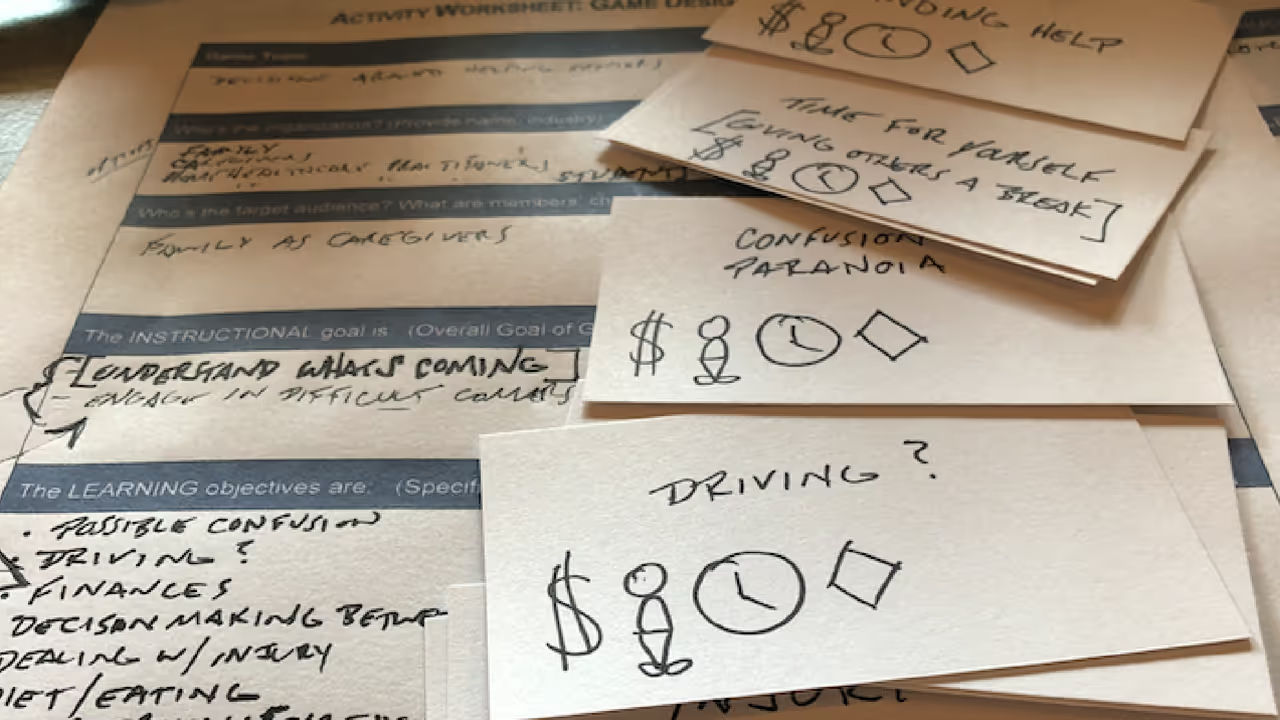



Game design for corporate training, or game-thinking as Dr. Karl Kapp calls it, is important for instructional designers. Games are a tricky subject in corporate training and L&D. For some reason, work is not supposed to be fun. And games are fun. Games are what you play when you’re not working. So, bringing games into the workplace must be wrong, right?
Wrong.
I recently spent a week with a small group of professionals learning about innovation, play, and game design for corporate training in Florida. It was the inaugural StepAway.design event hosted by Dr. Karl Kapp, Kevin Thorn, and Deborah Thomas. These are three heavy hitters in the world of corporate training and L&D. If you are unfamiliar with them and their work, you should get to know them.

The experience falls into 3 main categories: Location, Design thinking, and game design for corporate training experiences. Stepaway was less of a conference and more of a small summit or retreat experience. The Great Escape was the perfect venue for just such a gathering. The LEGO Serious Play experience was more impactful than I was expecting and have new respect for those little plastic parts. And the main project that we all worked towards was designing our own card game. It’s a powerful combination for engaging attendees/learners.
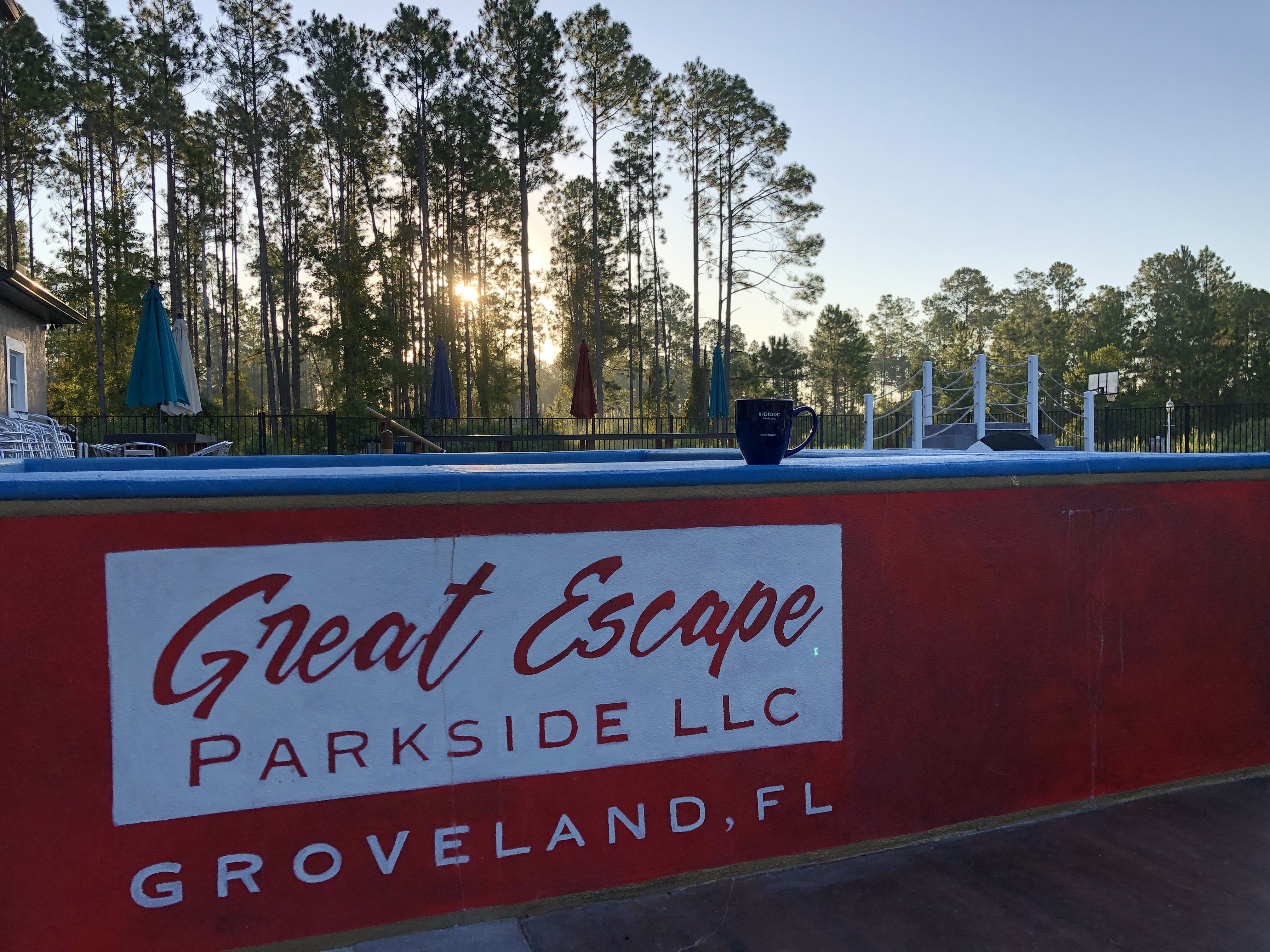
I don’t consider myself an expert after only one week of game design experience. My commentary will remain limited to just my personal experience. However, I’ve read a lot on game design and have had many conversations over the years on the topic. Going through the entire creative process from idea to product creation in less than a week takes hard work. No - hard fun!
We wasted no time and dove right into the deep end of game design for corporate training. After a brief introduction to game design from Dr. Karl Kapp we jumped into a quick game of TimeLine and then a debrief session. TimeLine is a fairly simple card game with a simple game mechanic. But it’s obvious from the start how much can be learned. And also how much you think you know, but quickly realize you don’t.
After a few rounds of the game we stopped and debriefed about our experience. We discussed how the game could be modified only slightly to teach a manufacturing process, complex business processes, government procedures, or even project management. The social aspect of the debriefing session is also important to mention. It's a major element of the learning process often overlooked, and under-valued, in the rush to automate digital training experiences.
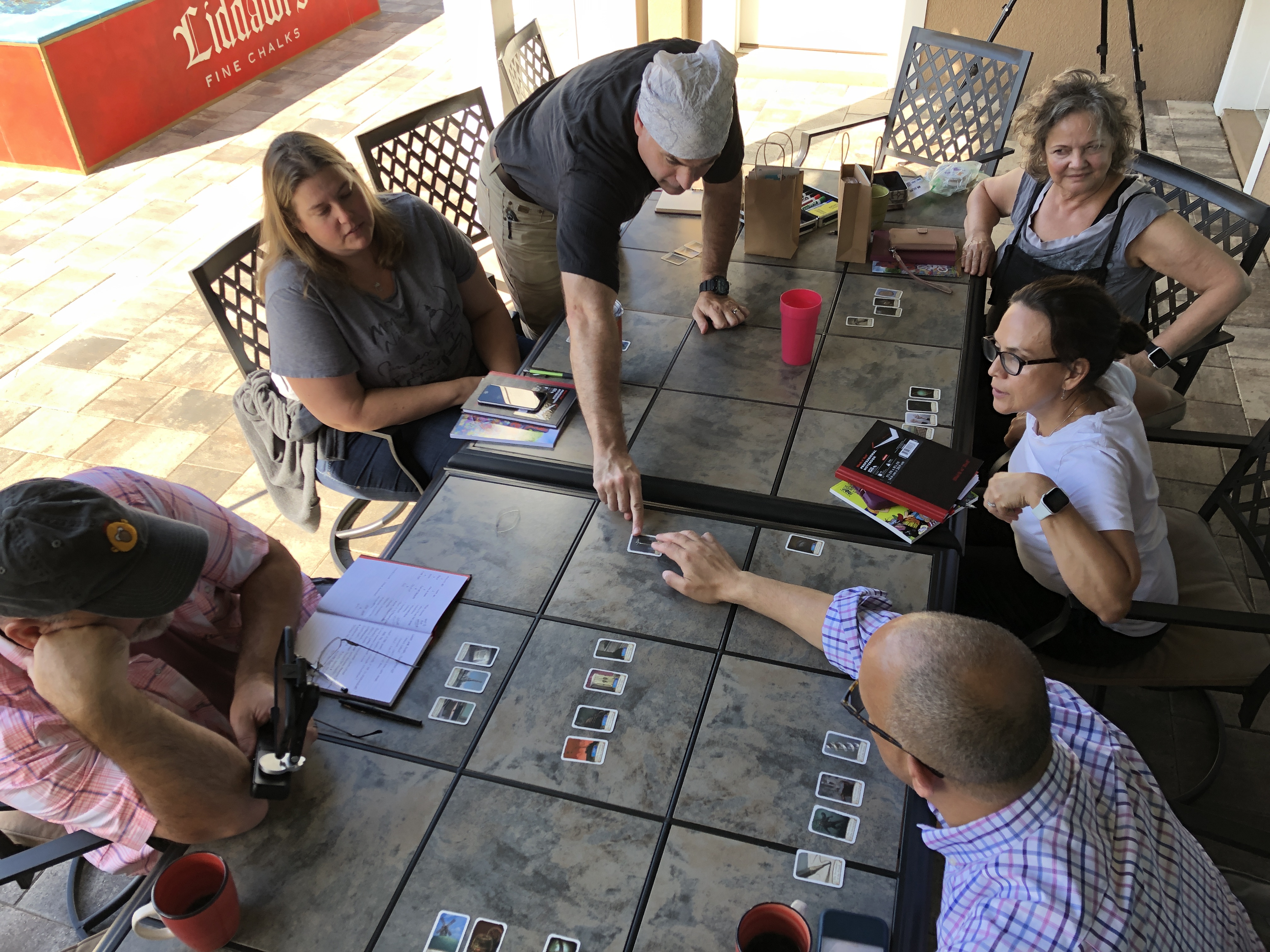
The debrief is critical in many game designs for corporate training. That’s where most of the learning occurs. Karl told a great story about a serious game ending when the facilitator sees that the group playing and they have the a-ha moment. Players are told to play the game until the end of game play is reached, however that’s just a ruse. The real “end game” is the a-ha moment. This was important for me to remember. It’s so easy to continually fall into the mindset of games in the traditional sense as a form of entertainment.
Research on memory and learning tells us that telling someone something is a weak experience with minimal chance of being committed to memory. But engaging them in an experience allowing them to discover moments of clarity, a-ha moments, on their own is more powerful. And this is what game design/thinking gives us in our ever expanding toolbox of training experience options.

I decided that my card game would be about preparing families to care for aging parents. Not the type of topic you’d expect to be in a game, right? But I suppose that’s why I chose it. We were encouraged to try things because we were in a safe environment and failure was okay and part of the process. But after re-calibrating my thinking about what a card game can be, it actually started to feel like it just might work. There were many moments of frustration. Feeling like the idea was not good and a waste of time kept creeping back into my head. But that’s where Deborah Thomas came in as the master facilitator and got me back on track. Refocusing on the main objectives kept things moving along.
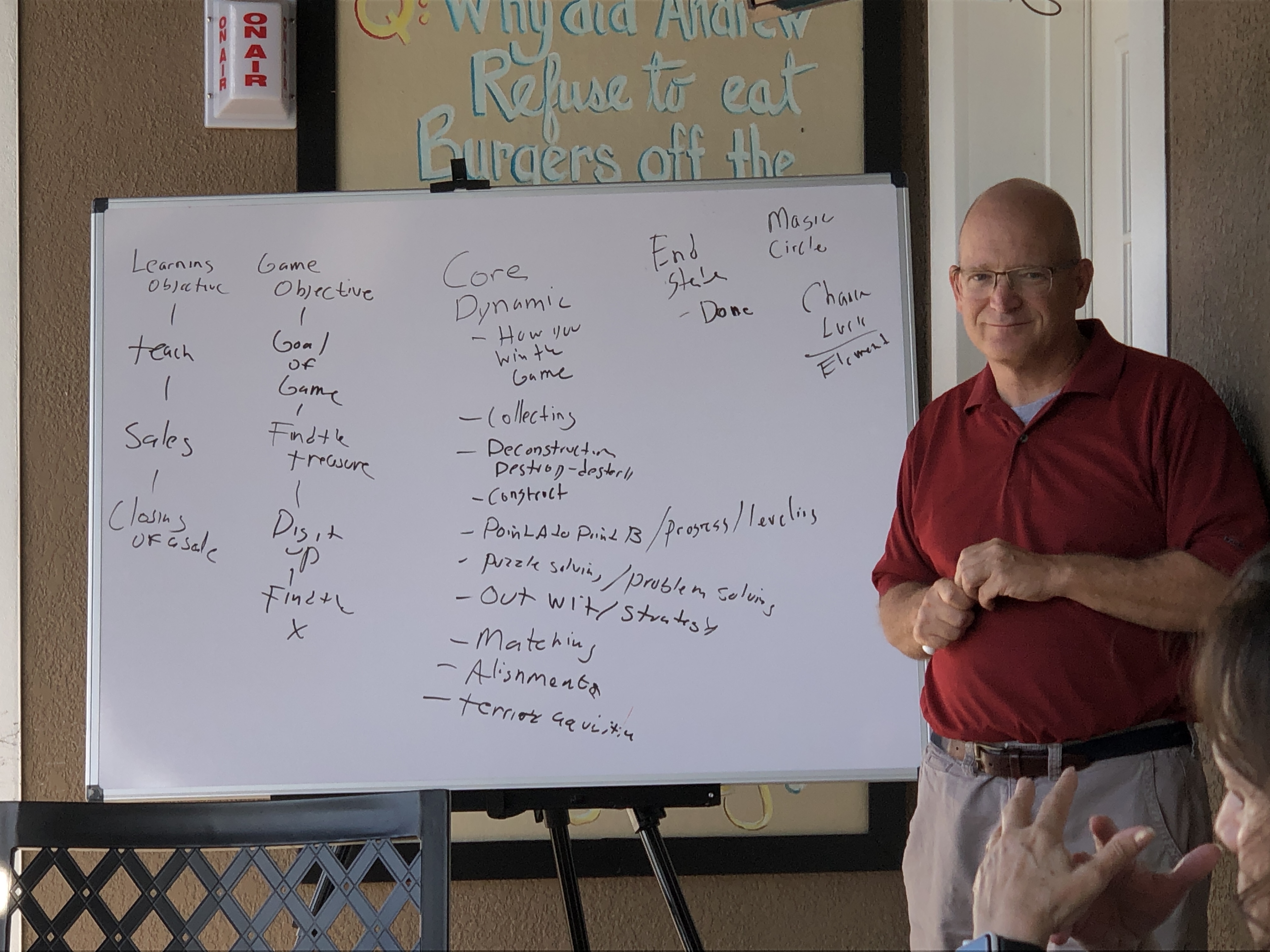
The idea works when you simply think of the “game” as a vehicle for having a tough conversation. And remembering that the end game isn’t about winning. It’s about awareness and conversations that lead to a-ha moments about the coming realities of caring for aging loved ones.
You might be asking yourself if it’s still even a game then. I don’t know the answer to that. All I know is that it might be a useful experience for families to have together. Especially ones that don’t necessarily communicate that often or effectively. If it was the type of thing that was being marketed, you might not call it a game. Maybe it’s a family activity to learn about caring for your parents. Lots of grey area here, but the main point is that it was created using the game design for corporate training process.
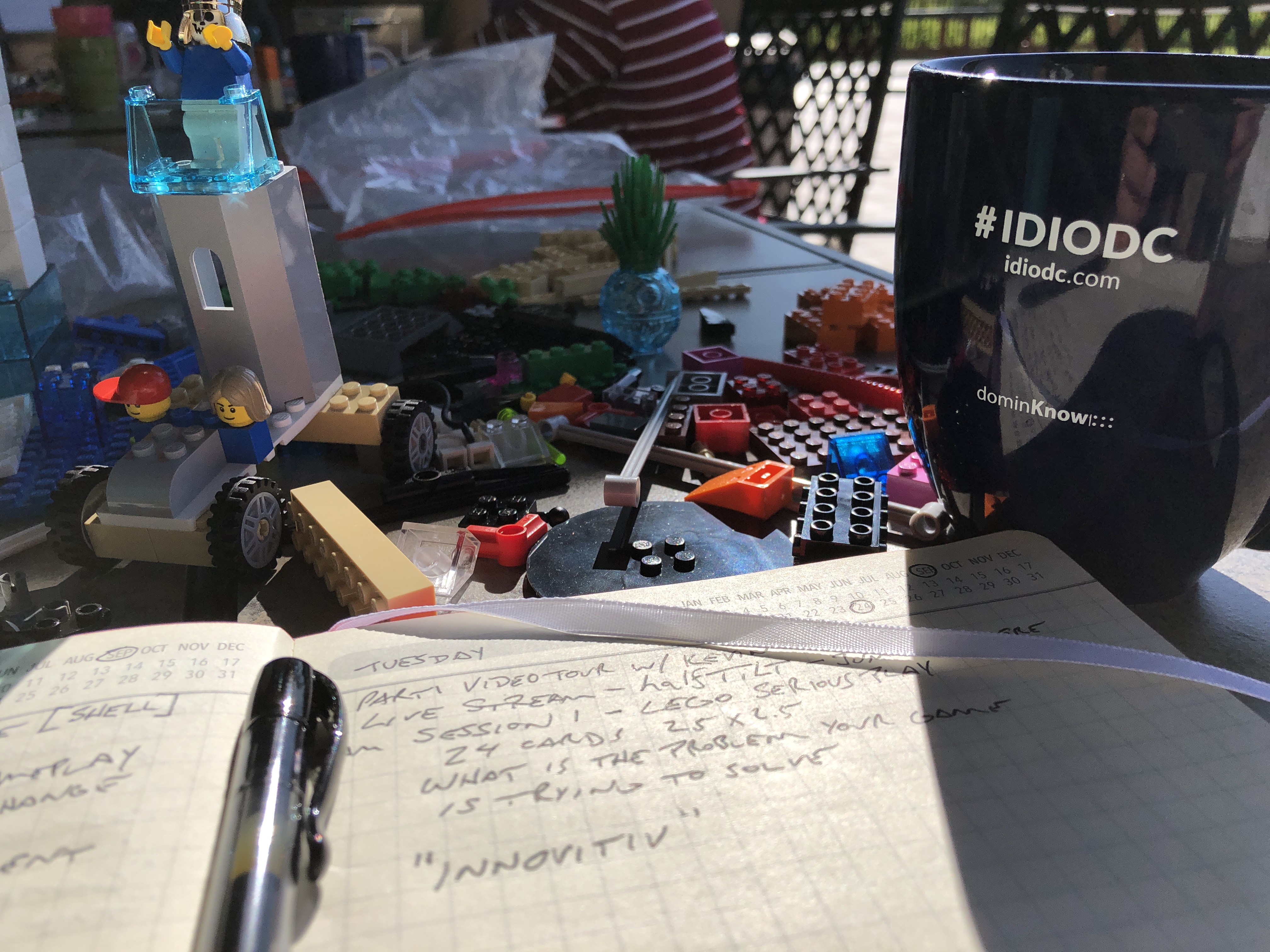
Kevin Thorn is one of the most creative people I know. His LinkedIn profile describes him the best as, “Solving problems at the intersection of play and creativity.” And when he first told me about getting certified as a LEGO Serious Play facilitator I was unsure of the value. He explained it. I understood what he was saying and could sort of paint the picture in my mind of how it might work. But until you actually go through the process you will just never know.
So we did. And it worked.
Our first LEGO activity was frustrating for me. I had not yet decided on my topic, learning objective, core dynamic, or anything about my project. But as I just started picking up the LEGO parts, and putting them together, I began to see the possibilities. It’s a strange concept to grasp until you do it. And I would most certainly encourage everyone to engage with LEGO Serious Play at some point.
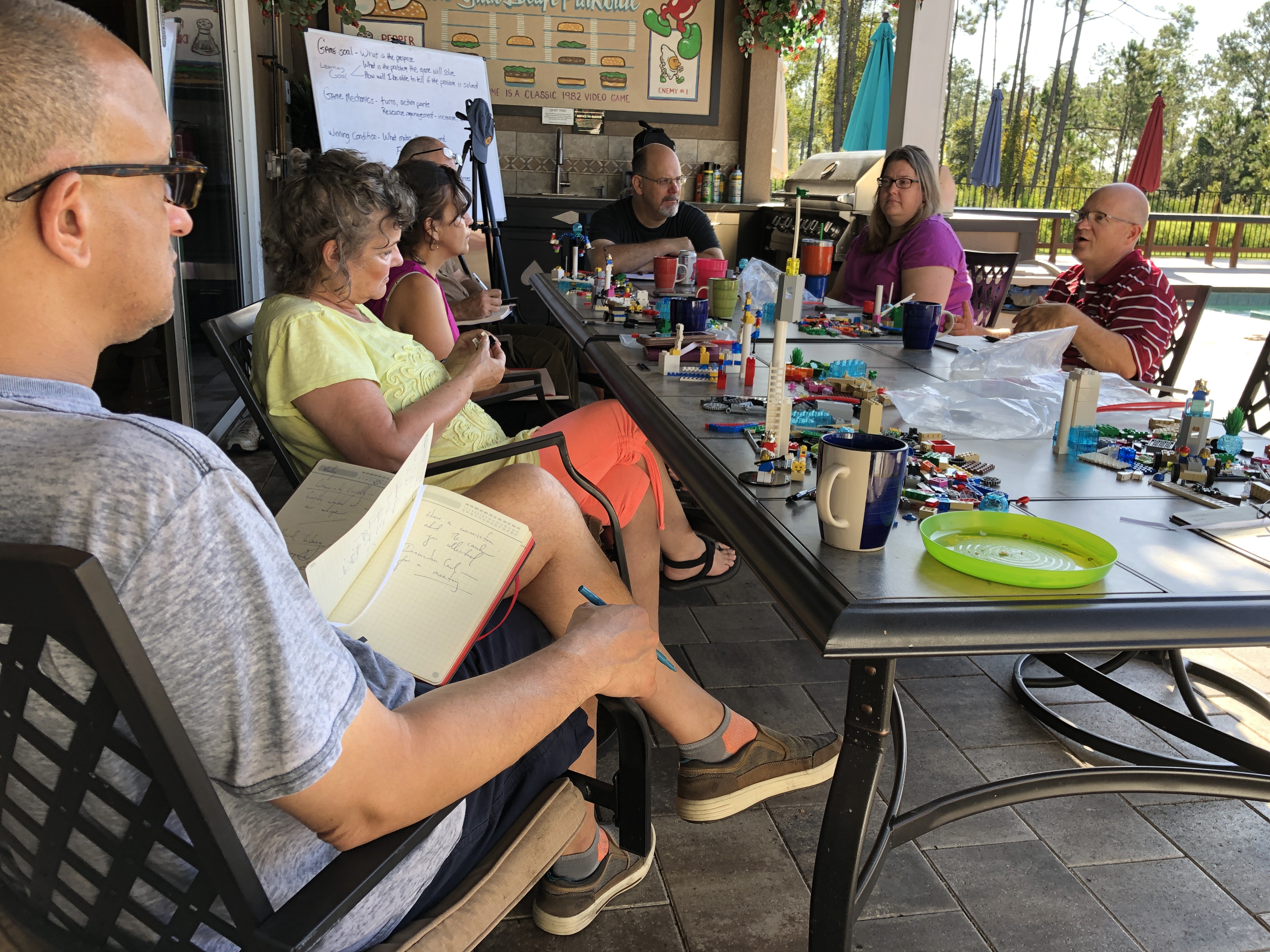
Building a structure with the LEGO bricks some how triggers something creative in all of us. The core idea was building something that is a visual metaphor of your project, or description of your experience. And then sharing the metaphor with the group is another example of how powerful social learning elements can be.
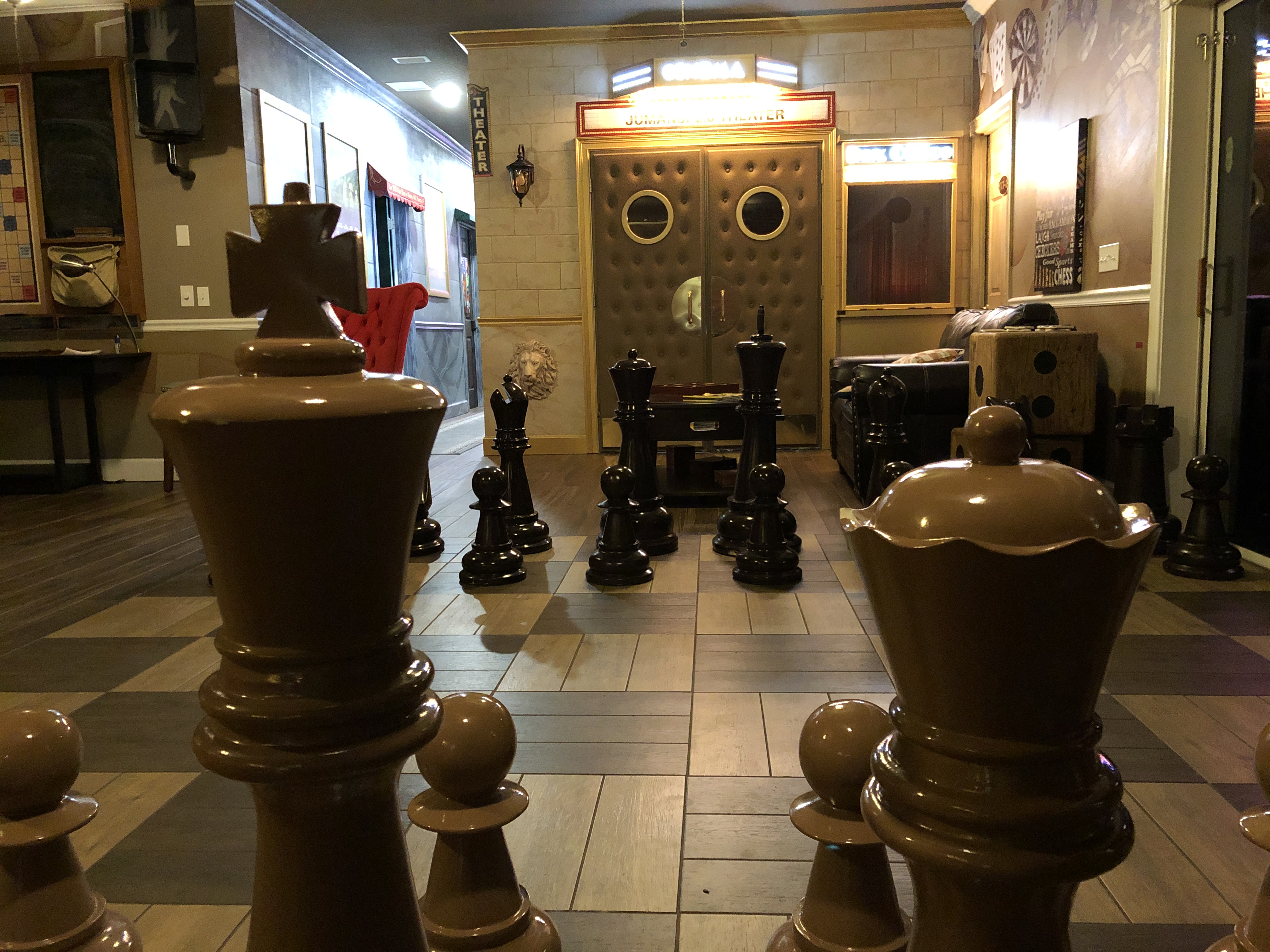
And the last of the three categories is the location. Creating an environment conducive to learning is part of what every instructional designer should strive for. In many corporate settings our game design for corporate training experiences are in a cold grey conference room or at a convention center. And that's about as creative as we get. This was the furthest thing from it. And that mattered.
Could these same topics be taught in the traditional convention rooms or conference rooms? Absolutely. Getting out of your typical environment is an amazing catalyst for creativity. But just consider for a moment how enhanced the experience can be. Since the event program includes game design for corporate training you get an exponential increase in the amount of content being immersed in games 24/7. It’s not just the programmed content that the event provides. You’re living inside dozens of games all day and all night. You’re even sleeping inside games. Metaphorically of course.
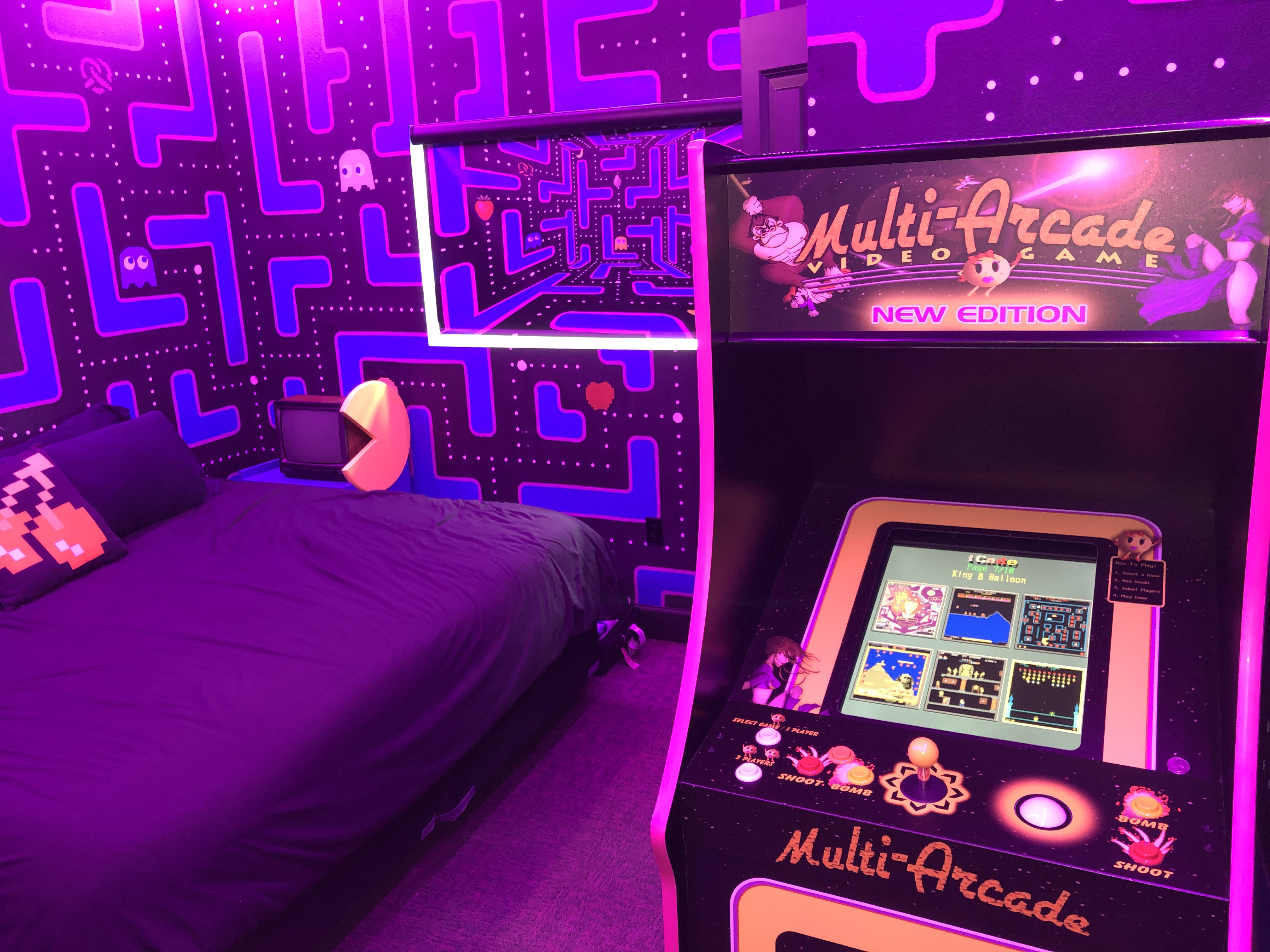
All 10 acres of The Great Escape have some sort of game/play element built in. It has digital games built into the rooms like the xBox room. There are board games mounted on the walls, and chess boards on the floors. Even escape rooms integrated into the bedrooms, and so much more. There truly is no better location I can think of to learn about game design for corporate training, innovation and creativity.
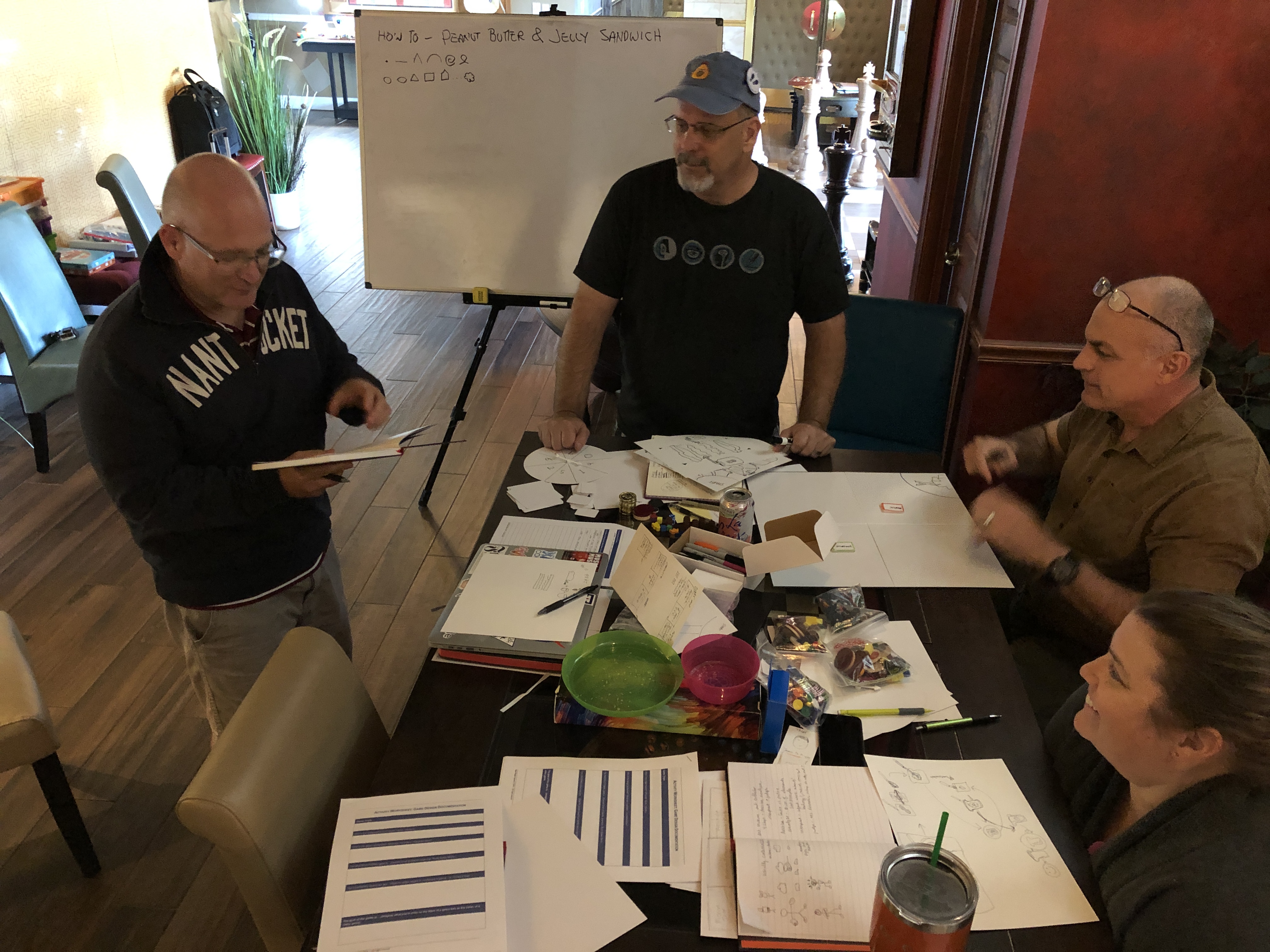
If you’re wondering it you should attend next year the answer is yes. If you’re looking for the typical corporate event experience, then no. At first glance the event might look expensive to some of you. But considering what you’d pay for a standard event for half as many days, with significantly less applied learning, it’s actually a reasonable expense. It’s all about the value and what you’re looking to achieve within a week. If you’re looking for the latest or best LMS then go to ATD 2020. But if you need to learn how to be creative, innovative, and think differently about the problems you face at work, then StepAway can help in so many different ways. Contact Kevin Thorn, Deborah Thomas, or Karl Kapp for more details.
.avif)
Instructional Designers in Offices Drinking Coffee (#IDIODC) is a free weekly eLearning video cast and podcast that is Sponsored by dominknow.
Join us live – or later in your favourite app!
Looking for a new authoring tool?
Check out dominKnow | ONE
Talk to your manager about upgrading to dominKnow | ONE!